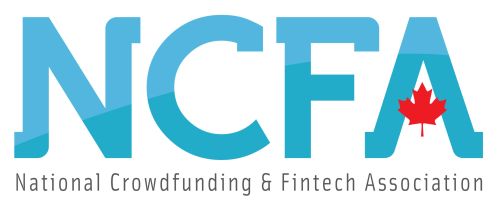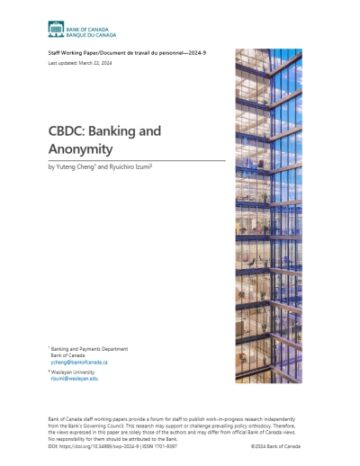March 18, 2024

 Image: Pixabay/Foundry
Image: Pixabay/FoundryIf you are looking for information about why you can’t find many tribal online casinos in the USA, then you’re in the right place because we have the answers.
The intricate relationship between American Native tribes and gambling is a multifaceted subject that intertwines legal, economic, and cultural threads. Continue reading more to learn everything we know about online tribal casinos.
Historical Background
Gambling among Native American tribes has existed for centuries as part of their cultural practices. Games of chance and skill were not only forms of entertainment but also held social, spiritual, and economic significance. They were often used in ceremonies and as a means of settling disputes.
However, the perception and role of gambling shifted dramatically following European colonization. The imposition of foreign laws and the establishment of federal and state regulations overshadowed the indigenous traditions of gaming.
The legal landscape for tribal gambling in the United States began to change significantly in the late 20th century. The pivotal moment came with the Indian Gaming Regulatory Act (IGRA) of 1988, which established the framework for the development of gambling operations on tribal lands.
This legislation recognized the authority of Native American tribes to operate gaming facilities under certain conditions, aiming to promote tribal economic development, self-sufficiency, and strong tribal governments.
For many tribes, the introduction of casinos and other gaming establishments has been transformative. The revenues generated from gambling operations have funded tribal government operations, social services, education, and healthcare programs.
Furthermore, casinos have become significant employers within many tribal communities, offering job opportunities to both Native and non-Native people.
Major Tribal States in the Gambling Industry
Several tribal states have emerged as key players in the American gambling sector, operating some of the largest and most successful casino resorts in the country. These include:
- The Mashantucket Pequot Tribal Nation in Connecticut
- The Seminole Tribe of Florida
- The Navajo Nation
For many tribes, maintaining control over their gaming operations is a form of sovereignty and self-determination. It allows them to preserve cultural traditions, invest in the revitalization of their languages and customs, and strengthen their communities from within.
Moreover, the relationship between Native American tribes and gambling is not without its challenges. Issues such as problem gambling, the potential for increased crime, and the complexities of managing commercial enterprises that are also cultural assets continue to be subjects of discussion and concern within tribal communities and among policymakers.
The Biggest Tribal Casino Properties in the USA
The United States is home to some of the world’s most significant and successful tribal casino properties. These establishments not only serve as major entertainment and gaming destinations but also as critical economic engines for their respective Native American communities.
Here’s a closer look at some of the largest and most influential tribal casinos in the USA.
- WinStar World Casino and Resort – The Chickasaw Nation, Oklahoma
- Foxwoods Resort Casino – The Mashantucket Pequot Tribal Nation, Connecticut
- Mohegan Sun – The Mohegan Tribe, Connecticut
- Tulalip Resort Casino – The Tulalip Tribes, Washington
- Pechanga Resort Casino – The Pechanga Band of Luiseño Indians, California
These tribal casino properties are more than just gaming and entertainment venues. The casinos are vital to the economic prosperity and social welfare of their tribal communities.
The revenues generated support a wide range of tribal government initiatives, including education, healthcare, and cultural preservation programs. Furthermore, these casinos are among the largest employers in their regions, providing thousands of jobs to both Native and non-Native individuals.
The success of these establishments also serves as a testament to the entrepreneurial spirit and resilience of Native American tribes.
By leveraging their sovereign status and embracing the opportunities within the gaming industry, these tribes have created sustainable economic development paths that benefit their members and the broader community.
The Challenges and Considerations of Tribal Casinos Going Online
The digital transformation has reshaped many industries, including the gambling sector. While online gambling has seen significant growth globally, most tribal casinos in the United States have remained primarily focused on their land-based operations, with notable exceptions like the Seminole Tribe in Florida.
Several factors contribute to this phenomenon, reflecting a complex interplay of legal, regulatory, economic, and cultural considerations.
The most significant barrier to tribal casinos expanding into online gambling is the complex legal and regulatory environment in the United States. The Indian Gaming Regulatory Act (IGRA) of 1988, which governs tribal gaming, does not explicitly address online gambling.
This leaves a gray area that complicates the ability of tribes to offer gambling services over the Internet.
Furthermore, any move towards online gambling requires navigating not only tribal regulations but also federal and state laws. Each state has its own set of rules regarding online gambling, and not all states allow it. For tribal casinos to operate online, they must comply with the legal frameworks of the states in which their potential customers reside, complicating the expansion of their gaming operations to the digital realm.
Tribal casinos have traditionally been significant economic engines for their communities, providing funding for various social services, education, and healthcare programs.
The transition to online gambling presents economic uncertainties. There are concerns about cannibalizing the revenue from land-based casinos, which are not only gaming facilities but also tourism and cultural attractions that employ thousands of individuals.
Moreover, the competitive landscape of online gambling, dominated by established global operators, poses a significant challenge for tribal casinos. Entering this market requires substantial investment in technology, marketing, and compliance infrastructure, which may not be feasible or attractive for all tribes.
For many tribes, the operation of casinos is an exercise of sovereignty and self-regulation. Moving to an online platform presents challenges in maintaining this sovereignty, especially when navigating the patchwork of state regulations. There’s also a concern about losing control over the gambling environment and ensuring that it remains a benefit to the tribal community rather than a liability.
Cultural values and the social impact of gambling are also significant considerations for many tribes. The expansion into online gambling raises concerns about problem gambling and its potential social consequences. Many tribal leaders are cautious about adopting online gambling without strong mechanisms to promote responsible gaming and protect their community members.
The Seminole Tribe of Florida: A Notable Exception
The Seminole Tribe of Florida’s foray into online gambling, particularly through their Hard Rock Digital arm, represents a pioneering move among tribal casinos. Their success has been facilitated by a combination of factors, including the tribe’s strong economic foundation, legal acumen, and strategic partnerships that have allowed them to navigate the complexities of online gambling regulations effectively.
See: What’s Driving Wealth Management Trends for 2024 How to get into angel investing with ‘no’ money
However, their path has not been without challenges, including legal disputes and the ever-evolving landscape of state gambling laws.
While the success of the Seminole Tribe in Florida illustrates the potential for tribal engagement in online gambling, it also highlights the complexities involved. As the gambling landscape continues to grow, tribal casinos may gradually explore online opportunities, carefully balancing economic potential against the imperative to protect their sovereignty, community values, and social welfare.

 The National Crowdfunding & Fintech Association (NCFA Canada) is a financial innovation ecosystem that provides education, market intelligence, industry stewardship, networking and funding opportunities and services to thousands of community members and works closely with industry, government, partners and affiliates to create a vibrant and innovative fintech and funding industry in Canada. Decentralized and distributed, NCFA is engaged with global stakeholders and helps incubate projects and investment in fintech, alternative finance, crowdfunding, peer-to-peer finance, payments, digital assets and tokens, artificial intelligence, blockchain, cryptocurrency, regtech, and insurtech sectors. Join Canada’s Fintech & Funding Community today FREE! Or become a contributing member and get perks. For more information, please visit: www.ncfacanada.org
The National Crowdfunding & Fintech Association (NCFA Canada) is a financial innovation ecosystem that provides education, market intelligence, industry stewardship, networking and funding opportunities and services to thousands of community members and works closely with industry, government, partners and affiliates to create a vibrant and innovative fintech and funding industry in Canada. Decentralized and distributed, NCFA is engaged with global stakeholders and helps incubate projects and investment in fintech, alternative finance, crowdfunding, peer-to-peer finance, payments, digital assets and tokens, artificial intelligence, blockchain, cryptocurrency, regtech, and insurtech sectors. Join Canada’s Fintech & Funding Community today FREE! Or become a contributing member and get perks. For more information, please visit: www.ncfacanada.org
Related Posts
- SEO Powered Content & PR Distribution. Get Amplified Today.
- PlatoData.Network Vertical Generative Ai. Empower Yourself. Access Here.
- PlatoAiStream. Web3 Intelligence. Knowledge Amplified. Access Here.
- PlatoESG. Carbon, CleanTech, Energy, Environment, Solar, Waste Management. Access Here.
- PlatoHealth. Biotech and Clinical Trials Intelligence. Access Here.
- Source: https://ncfacanada.org/the-history-of-tribal-casinos-and-their-digitalization/
- :has
- :is
- :not
- 150
- 2018
- 2024
- 20th
- 62
- a
- ability
- About
- Act
- acumen
- address
- Adopting
- affiliates
- against
- Aiming
- All
- allow
- allowed
- allows
- also
- alternative
- alternative finance
- American
- among
- an
- and
- Angel
- answers
- any
- ARE
- AREA
- ARM
- artificial
- artificial intelligence
- AS
- Assets
- At
- attractions
- attractive
- authority
- balancing
- BAND
- barrier
- BE
- because
- become
- been
- began
- benefit
- between
- Biggest
- blockchain
- both
- broader
- but
- by
- cache
- came
- CAN
- Canada
- carefully
- Casino
- Casinos
- cautious
- centuries
- Century
- Ceremonies
- certain
- challenge
- challenges
- Chance
- change
- closely
- closer
- combination
- commercial
- Communities
- community
- competitive
- complex
- complexities
- compliance
- comply
- Concern
- Concerns
- conditions
- Consequences
- considerations
- continue
- continues
- contribute
- control
- country
- create
- created
- Crime
- critical
- Crowdfunding
- cryptocurrency
- cultural
- Customers
- customs
- decentralized
- destinations
- Development
- digital
- Digital Assets
- Digital Transformation
- digitalization
- discussion
- disputes
- distributed
- does
- dominated
- dramatically
- driving
- each
- Economic
- Economic Development
- ecosystem
- Education
- effectively
- embracing
- emerged
- employers
- engaged
- engagement
- Engines
- ensuring
- entering
- enterprises
- Entertainment
- entrepreneurial
- Entrepreneurial Spirit
- Environment
- especially
- established
- establishment
- Ether (ETH)
- European
- everything
- Exercise
- existed
- expanding
- expansion
- explicitly
- explore
- facilitated
- facilities
- factors
- feasible
- Federal
- finance
- financial
- financial innovation
- Find
- fintech
- florida
- focused
- following
- For
- Foray
- foreign
- form
- forms
- Foundation
- Foundry
- Framework
- frameworks
- from
- funded
- funding
- funding opportunities
- Furthermore
- Gambling
- gambling laws
- Games
- gaming
- Gaming industry
- Gen
- Gen Z
- generated
- get
- Global
- Globally
- going
- Government
- Governments
- governs
- gradually
- gray
- gray area
- Grow
- Growth
- guide
- Hard
- Have
- healthcare
- Held
- helps
- High
- highlights
- history
- Home
- http
- HTTPS
- illustrates
- image
- Impact
- imperative
- in
- include
- Including
- increased
- Indian
- Indian Gaming
- individuals
- industries
- industry
- Influential
- information
- Infrastructure
- initiatives
- Innovation
- innovative
- Insurtech
- Intelligence
- Internet
- into
- intricate
- Introduction
- Invest
- investing
- investment
- involved
- issues
- IT
- ITS
- Jan
- Job
- Job Opportunities
- Jobs
- jpg
- just
- Key
- Know
- land-based casinos
- lands
- landscape
- Languages
- largest
- Late
- Laws
- leaders
- LEARN
- leaves
- Legal
- Legislation
- leveraging
- liability
- like
- Look
- looking
- losing
- maintaining
- major
- man
- management
- managing
- many
- Market
- Marketing
- max-width
- May..
- means
- mechanisms
- member
- Members
- Mobile
- mobile phone
- moment
- more
- most
- move
- moving
- multifaceted
- must
- nation
- native
- Navigate
- navigating
- networking
- non-native
- notable
- of
- offer
- offering
- often
- on
- online
- online gambling
- only
- operate
- operating
- operation
- Operations
- operators
- opportunities
- or
- Other
- over
- own
- part
- particularly
- partners
- partnerships
- path
- paths
- payments
- peer to peer
- People
- perception
- perks
- phenomenon
- phone
- Pioneering
- pivotal
- Place
- platform
- plato
- Plato Data Intelligence
- PlatoData
- players
- please
- policymakers
- poses
- potential
- potential customers
- practices
- presents
- preservation
- preserve
- primarily
- Problem
- problem gambling
- Programs
- projects
- promote
- properties
- prosperity
- protect
- provides
- providing
- raises
- range
- rather
- RE
- Reading
- realm
- recognized
- reflecting
- regarding
- regions
- Regtech
- regulations
- regulatory
- relationship
- remained
- remains
- represents
- requires
- resilience
- Resort
- Resorts
- respective
- responsible
- Responsible Gaming
- revenue
- revenues
- right
- Rock
- Role
- rules
- s
- sector
- Sectors
- seen
- serve
- serves
- Services
- set
- settling
- shifted
- significance
- significant
- significantly
- skill
- Social
- Social impact
- some
- sovereign
- sovereignty
- spirit
- spiritual
- stakeholders
- State
- States
- Status
- Stewardship
- Strategic
- Strategic Partnerships
- Strengthen
- strong
- subject
- substantial
- success
- successful
- such
- support
- survival
- sustainable
- T
- Technology
- testament
- than
- that
- The
- the world
- their
- Them
- then
- There.
- These
- they
- this
- thousands
- Through
- to
- today
- Tokens
- Tourism
- towards
- traditionally
- Transformation
- transformative
- transition
- Trends
- Tribal
- Tribe
- tribes
- uncertainties
- under
- understanding
- United
- United States
- USA
- used
- using
- Values
- various
- venues
- vibrant
- Visit
- vital
- we
- Wealth
- wealth management
- Welfare
- were
- when
- which
- while
- why
- wide
- Wide range
- with
- within
- without
- works
- world
- you
- zephyrnet












